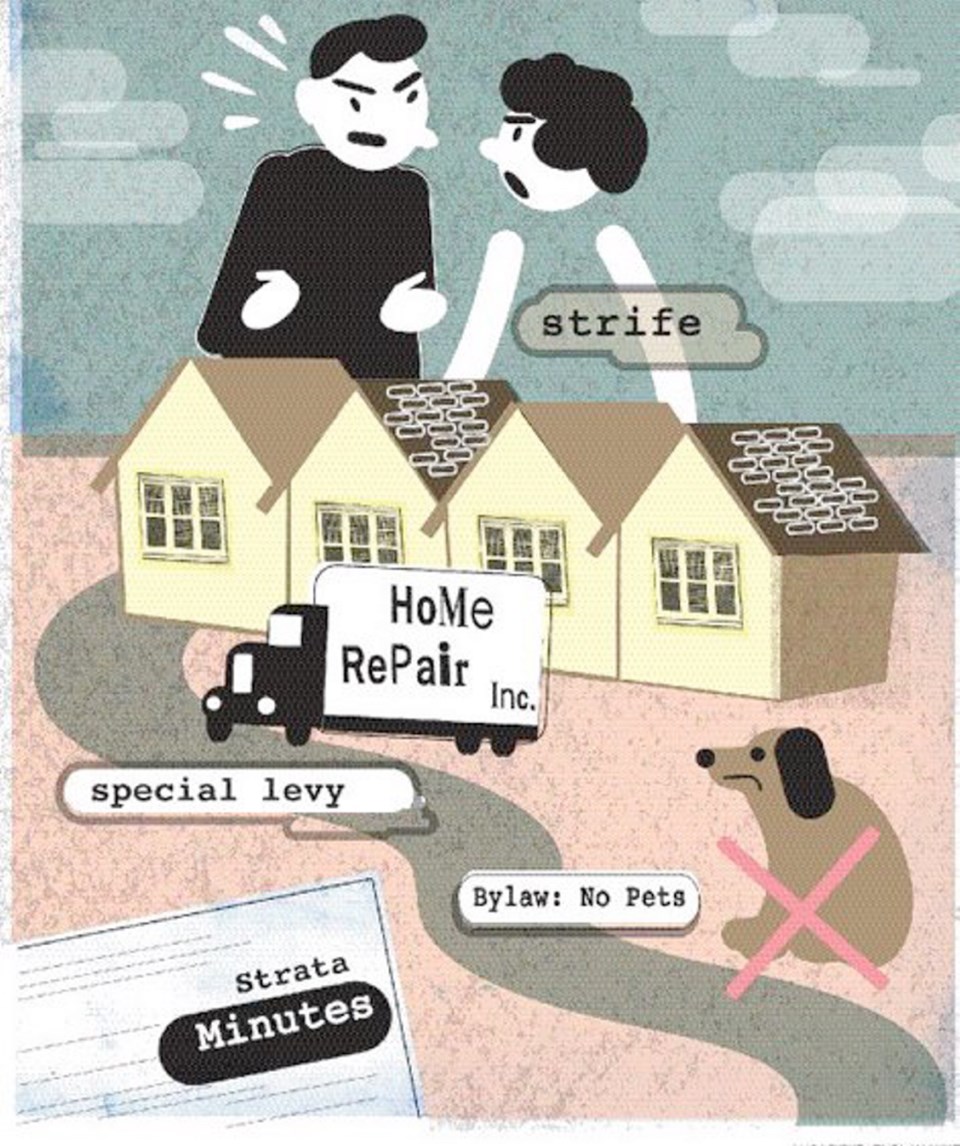Dear Tony: What happens when a strata council will not enforce our bylaws?
We live in an apartment building that is 15 years old. The soundproofing is limited between floors, and where owners have installed hardwood flooring, the sound for owners below is unbearable.
Many of us who have complained have basically been told there is nothing council can do and we have to live with it.
Council has become frustrated because, over the years, owners have disregarded the bylaws and altered property without permission.
We spoke to a lawyer about forcing the issue, and were told it would be expensive as it would require a Supreme Court application to obtain an order that would make the strata enforce the bylaws. Between the cost and the time involved, this is unrealistic.
It was suggested we consider an application through the tribunal, but there isn’t any information available. When is the tribunal that deals with strata issues happening? How do we start an application?
Matt Kirk
Vancouver
The Civil Resolution Tribunal legislation was passed in 2013 and we are hoping to see the system running by the end of this year.
The CRT is an online method of dealing with disputes that are often time-sensitive or not practical to take to court because of costs.
The essence of the CRT will be an evaluation, mediation and adjudication system that will enable strata owners, tenants and councils to address common disputes.
It is easy to understand why it’s time to modernize our justice system to give the public fair access to justice for the daily events that have a significant impact on our homes.
In the 1960s, when strata-titled property (condos) first appeared, less than .01 per cent of British Columbia’s population was involved in strata ownership. In 2015, more than 50 per cent of the population owns, rents or conducts business in a strata-titled property.
The creation of strata property provided a remarkable opportunity for higher-density living, which, for the first time, enabled many families to buy their own home. It also created another level of corporate administration, which resulted in a simple government system that today results in more than 30,000 strata councils that run real corporations valued between $500,000 and $200 million.
These volunteers, for the most part, hold monthly meetings, create minutes, manage budgets, enforce bylaws, convene general meetings and manage finances, which all together routinely results in conflict and misunderstandings. Court disputes are costly, time-consuming and often do not remedy problems.
CRT chair Shannon Salter provides a good perspective on the need for the tribunal. Says Salter: “The need for accessible justice is obvious by the number of costly and time-consuming disputes that are in the press today.
“For a strata owner to get their council to enforce a noise bylaw or pet bylaw that may be a nuisance, that owner has no choice but to make an application to the Supreme Court of B.C. for an order, that will essentially require the strata to enforce the bylaw, which may or may not result in the problem actually being resolved, while at the same time, taking six to 12 months and tens of thousands in costs.”
The tribunal will be able to issue decisions and orders that can ultimately be enforced through the Supreme Court if the participants do not comply.
The tribunal will function on three levels. The first is a self-assessment process where the user can identify the nature of the problem and is given resources to determine if they have explored all options — draft letters, help sections and summary evaluations.
If the matter requires intervention, the second level will be a case-management level where both parties work with a case manager, who will attempt to mediate the parties into a solution.
If that fails, the third level is a tribunal hearing where the adjudicator essentially acts like a judge to determine the outcome.
The anticipation is that this will happen in 30 to 90 days and cost less than $500.
One of the dispute options that strata owners can currently engage in is arbitration; however, we rarely recommend arbitration because of the unpredictable level of risk associated with cost and time. While arbitration is mandatory under the Strata Property Act, and may be enforced through Supreme Court, there are no regulations or rules that determine who may be an arbitrator, how costs are established, rates, fees, time periods for hearings and decisions, or how costs for decisions are assessed. There is no shortage of arbitrations that should have cost less than $5,000 exceeding $100,000. Arbitration will still have a valuable purpose for complicated strata property issues, but the day-to-day disputes that seriously affect an owner’s financial risk and enjoyment of their property requires a better regulated solution.
If you want to keep up on the progress of the CRT, go to civilresolutionbc.ca.
Tony Gioventu is the executive director of the Condominium Home Owners Association. Online: www.choa.bc.ca
Email tony@choa.bc.ca



